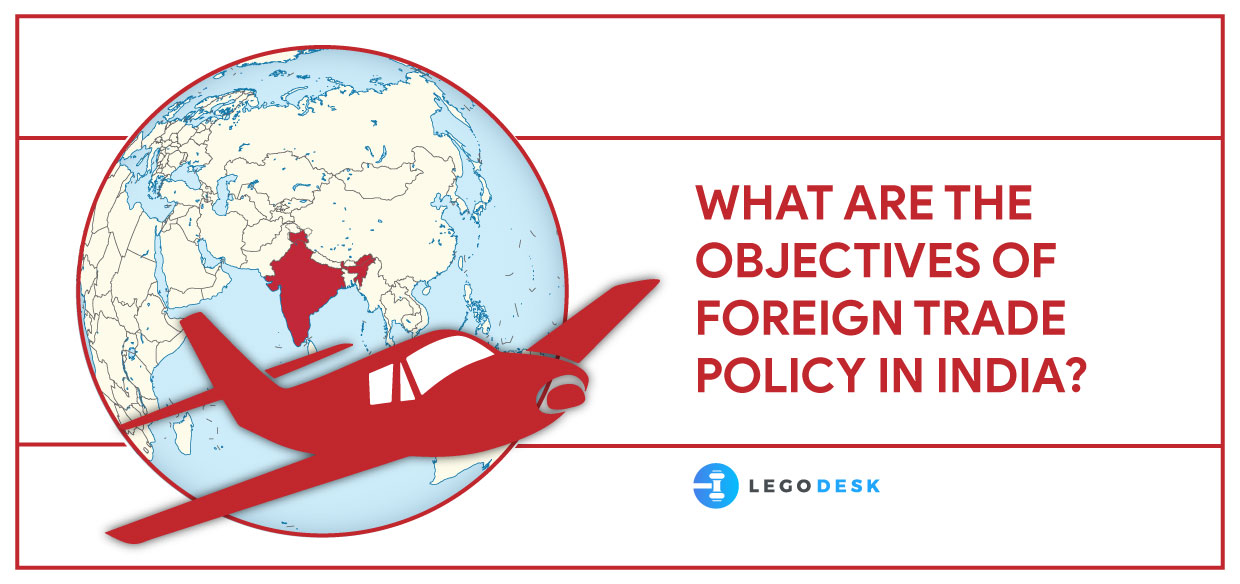
Introduction
India is known as one of the most important and emerging player in the global economy. Its foreign trade policies and government reforms have made it a significant destination for foreign investments around the world. Also, technological and infrastructural developments being carried out all over the country enable efficient trade and economic practices. For the successful economic development of a country, a vigorous foreign trade policy is of great importance. Therefore, India adopted a foreign trade policy known as the EXIM Policy or the Export-Import policy.
Try our all-in-one Legal Practice Management Software Free Sign Up Now!

Foreign Trade Policy in India
The current Foreign Trade Policy is for the period 2015 – 2020 announced by the Government of India, Ministry of Commerce and Industry on 01st April 2015. Foreign trade policy needs amendments every five years and aims at developing export capability, improving export performance and structure, encouraging foreign trade, and creating a suitable balance of payments position. It is updated every year on the 31st of March, and the modifications, improvements, and new schemes become effective from 1st April each year.
Read Also – The role of Trade Union in India
India in 1991, after liberalization, totally lifted all sorts of restrictions from trade for the purpose of improvement in the balance of payment position. A strong need was felt for Indian markets to work globally, and the economy was set free. But in a developing economy, it is not possible to develop industries without the protection of policies. Therefore, later, it was necessary for India to impose a restriction on its economy through trade policies to regulate import and export.
Objectives of the Foreign Trade Policy in India
Trade enables economic growth and national development. The main aim is not the mere earning of foreign exchange, but encouraging greater economic activity. The foreign trade policy of India is based on the following major objectives as follows:
- To enable substantial growth in exports from India and import to India to boost the economy.
- To at least double the percentage share of global merchandise trade conducted within the next five years.
- To improve the balance of payment and trade.
- To act as an effective instrument of economic growth by creating employment opportunities for the citizens; the larger the expansion of trade activities, the more the workforce required.
- To provide for sustainable growth by giving access to essential raw materials for production and other components, consumables, and capital goods required for increasing production and providing efficient services.
- To raise the technological capacity for production and cost-effectiveness of industry and services, thereby improving their competitive strength in comparison to other countries, and to encourage the accomplishment of internationally accepted standards of quality.
- To provide buyers or clients with high-quality goods and services at globally competitive rates and quality. ‘Canalization’- an important feature of Foreign Trade Policy under which specific class of goods can be imported only by designated agencies.
- Creation of opportunities by engaging in good and ethical practices.
- Accelerating the economy from low-level economic activities to high-level economic activities by making it a globally oriented and vibrant economy
- To derive maximum benefits from expanding the global market and seizing the best opportunities available.
- Making policies that favor ease of doing business and e-governance.
- To allow for hassle-free transactions for both import and export.
- Reducing the interference between the exporters and Directorate General of Foreign Trade by reducing the number of export documents.
- To allow the import of technology and equipment’s which may help in achieving better international standards of quality and reduce the cost of production.
- Establishing the Advance Licensing System for imported goods needed for manufacturing various goods for export. An Advance License is issued by the Directorate General of Foreign Trade to allow duty-free import of inputs, which are physically integrated with the export product (making normal allowance for wastage).
- To allow the import of certain goods as listed in the Open General License; a kind of export license which is issued by the Government to domestic suppliers.
Read Also – Place of Supply of Goods under GST
Conclusion
With the help of foreign trade policies, a country can lead to equality of pricing to ensure a stable demand and supply situation within the economy. Foreign trade policy also enables a nation to import certain products at the time of a natural calamity and therefore manage scarcity when demand is high by proving better quality and quantity of goods. It also assists in raising the standard of living and making commodities available at a lower cost. Therefore, the Foreign Trade Policy in India is a complete policy to enhance the position of India in the international market and create benefits for all.

